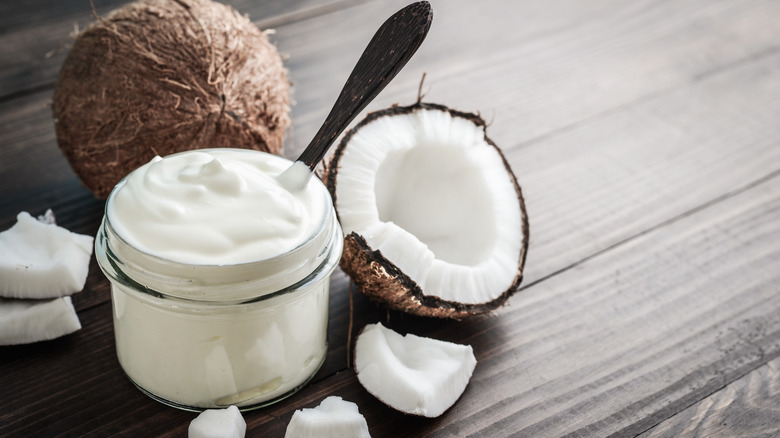Are Non-Dairy Yogurts Actually Good For You?
Moo-ve aside, dairy industry! Over the last few years, dairy alternatives have started making their way onto the scene in a real way. As our society begins to make a more concerted effort to navigate food sensitivities that might cause inflammation, tummy troubles, and skin problems, lots of dairy-free alternatives are becoming available. Whether you're leaning in for health, moral, or environmental reasons, we're here for it.
You might have recently stumbled across some non-dairy yogurts in your local grocery or health food store. Created using almond, soy, cashew, or coconut milk, there's no longer a shortage of vegan yogurt options for you to incorporate into your weekly menu. But as we learned from Big Food's push of products sporting "organic" labels, having a buzzword on the front doesn't automatically make it healthy. So let's dive in and figure out whether or not non-dairy yogurt is actually good for you.
What are the health benefits of non-dairy yogurt?
Right off the bat, those with lactose intolerance or dairy sensitivities can feel at ease knowing that non-dairy yogurt can be added to their parfaits and smoothies without the risk of having to run to the bathroom. But do the benefits go beyond alleviating those pesky "missing out" feelings?
Regular dairy yogurt can be an excellent source of protein and is generally packed with gut-healthy nutrients. Fortunately, the same is true of most dairy-free yogurts. According to Prevention, some non-dairy yogurts boast up to 10 grams of protein (this is mostly true for soy-based yogurts). However, they go on to note that looking for a brand that offers somewhere around 6 grams of protein is both feasible and beneficial.
A study published in Integrative Medicine noted that almond, soy, coconut, and cashew yogurts all contain beneficial bacteria that may serve to promote health.
Of course, like regular yogurt, it's important to read the nutrition label and ingredients when shopping for non-dairy yogurt. Many of the brands that offer yummy flavors can be loaded with added sugars. Healthline suggests opting for something with little to no sugar and very few ingredients to maximize the health benefits.
Benefits beyond your body
Even when we put aside the well-known abuse that many dairy cows are forced to endure, the resource-intensive nature of the dairy industry has long been notorious for the toll it takes on the environment. A recent study published through the American Association for the Advancement of Science (AAAS) compared data from thousands of farms worldwide and found that foods without dairy are better for the planet. In the same study AAAS determined that dairy milk produces more greenhouse gas emissions than its non-dairy counterpart.
So there you have it! Dairy-free yogurt can be a perfectly healthy option, given that you find brands that offer a product high in protein and low in added sugars. And what's the cherry on top of your dairy-free sundae? Making the switch from dairy milk might also make for a healthier planet — as well as happier cows to live on it.



